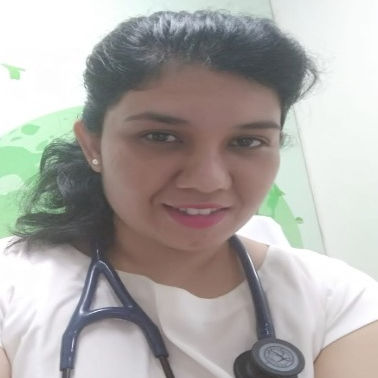Influenza A and B Virus Overview
Learn about Influenza A and B viruses, including their symptoms, transmission methods, and differences. Explore diagnosis, treatment options, and key prevention strategies like vaccination.


Influenza, commonly known as the flu, is a contagious respiratory illness caused by influenza viruses. Among the different types, Influenza A and B are the most common strains that affect humans. While the flu may seem like a mild illness for some, it can lead to serious complications, especially in young children, older adults, and people with weakened immune systems.
In this article, we’ll break down everything you need to know about Influenza A and B—symptoms, causes, prevention, and when to seek medical help—so you can stay informed and take the right steps to protect yourself and your loved ones.
What Are Influenza A and B Viruses?
Influenza viruses are divided into types A, B, C, and D. However, Influenza A and B are the main strains responsible for seasonal flu outbreaks in humans.
Influenza A: This type is more severe and can infect both humans and animals (like birds and pigs). It mutates frequently, leading to new strains each year, which is why flu vaccines are updated annually.
Influenza B: This type only affects humans and is generally milder than Influenza A, but it can still cause significant illness, especially in children.
Both viruses spread easily through droplets when an infected person coughs, sneezes, or talks.
Common Symptoms of Influenza A and B
Flu symptoms often come on suddenly and can be more severe than a common cold. They include:
Fever (often high)
Chills and body aches
Fatigue and weakness
Sore throat
Cough (usually dry)
Runny or stuffy nose
Headache
Nausea or vomiting (more common in children)
Symptoms usually last 1-2 weeks, but fatigue can linger longer. Some people, especially those with weakened immune systems, may develop complications like pneumonia, bronchitis, or worsening of chronic conditions (like asthma or heart disease).
Get Your Symptoms Checked By Top Specialists
How Does the Flu Spread?
Influenza viruses are highly contagious and spread through:
Airborne droplets (when an infected person coughs or sneezes)
Touching contaminated surfaces (doorknobs, phones) and then touching your face
Close contact with an infected person
You’re most contagious in the first 3-4 days after symptoms appear, but some people can spread the virus even before they feel sick.
Who Is at Higher Risk?
While anyone can get the flu, certain groups are more likely to develop severe complications:
Children under 5 (especially under 2 years)
Adults 65+
Pregnant women
People with chronic illnesses (asthma, diabetes, heart disease)
Those with weakened immune systems (cancer patients, HIV/AIDS)
If you or a loved one falls into one of these categories, it’s especially important to take preventive measures.
Get Your Health Assessed Here
How to Prevent the Flu?
The best way to protect yourself is through vaccination and good hygiene practices.
1. Get Vaccinated Every Year
The flu vaccine is updated annually to match circulating strains.
It reduces the risk of severe illness, hospitalisation, and death.
Recommended for everyone above 6 months, especially high-risk groups.
2. Practice Good Hygiene
Wash hands frequently with soap and water.
Use hand sanitizer if soap isn’t available.
Avoid touching your face (eyes, nose, mouth).
Cover coughs and sneezes with a tissue or elbow.
3. Boost Your Immune System
Eat a balanced diet (rich in fruits, vegetables, and proteins).
Stay hydrated.
Get enough sleep (7-9 hours for adults).
Exercise regularly.
4. Avoid Close Contact with Sick People
If you’re sick, stay home to prevent spreading the virus.
When to See a Doctor?
Most flu cases can be managed at home with rest and fluids. However, seek medical attention if you or a loved one experiences:
Difficulty breathing or chest pain
Persistent high fever (above 102°F/39°C)
Severe weakness or dizziness
Worsening of chronic conditions
Symptoms that improve but then return with fever and worse cough
High-risk individuals should consult a doctor early, as antiviral medications (like Tamiflu) can help reduce severity if taken within 48 hours of symptoms.
How Apollo 24|7 Can Help?
If you suspect you have the flu or want to get vaccinated, Apollo 24|7 makes it easy to:
Book a doctor’s consultation (online or in-person)
Schedule a flu test if needed
Get expert advice on managing symptoms
Early detection and care can make a big difference in recovery!
Conclusion
Influenza A and B can cause significant discomfort and, in some cases, serious health risks. The best defence is prevention—getting vaccinated, practising good hygiene, and staying informed. If you or a family member experience severe symptoms, don’t hesitate to seek medical help.
Get Your Symptoms Checked By Top Specialists
Get Your Symptoms Checked By Top Specialists

Dr. Utsa Basu
Diabetologist
14 Years • MBBS , MD
Barasat
Diab-Eat-Ease, Barasat
(75+ Patients)

Dr. Vivek D
General Physician
4 Years • MBBS
Bengaluru
PRESTIGE SHANTHINIKETAN - SOCIETY CLINIC, Bengaluru

Dr Tushar Karmakar
General Physician/ Internal Medicine Specialist
7 Years • MBBS, MD General Medicine
Kolkata
Kare pharmacy, Kolkata

Dr Sahana Gangatkar
General Physician/ Internal Medicine Specialist
8 Years • MBBS, MD
Bengaluru
Apollo Clinic, JP nagar, Bengaluru
(25+ Patients)

Dr. Impana G N
Physician/ Internal Medicine/ Covid Consult
11 Years • MBBS,DNB FAMILY MEDICINE, MNAMS ,CCEBDM
Mysuru
Apollo BGS Hospital Adichuchanagiri Road, Mysuru




